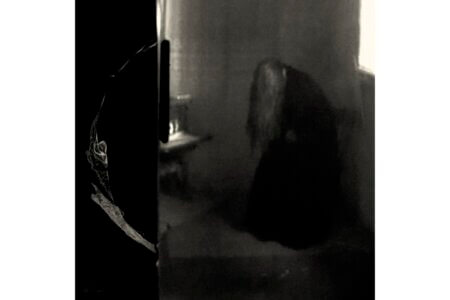
8
Perverts EP
Ethel Cain
The opposite of perversion is perfection. In Christian theology, the image of perfection is manifested in God, the omnipotent, omnipresent, and omniscient Being. The “perverse” are those who turn their backs to God, even if only slightly and for a short amount of time. A single thought or action that strays from his perfection leads the individual down the path of perversion, an undesirable life of sin and death. Yet, isn’t everything compared to a perfect being automatically perverse? Who decides what is perfect? Who decides one’s guilt and shame, even if they aren’t ashamed of their actions? Is there such thing as purity?
These questions underline the central narrative of Ethel Cain’s forthcoming EP, Perverts, an experimental, mostly ambient record monumental in length, design, and concept. From its Old Hollywood-esque, grainy rendition of “Nearer My God To Thee” —a 19th -Century Christian funeral hymn that uses the image of Jacob’s Ladder to imagine the long climb to salvation—that begins the titular track, the EP becomes obsessed with purity. The object Cain aims to replicate the most is water, a symbolic agent used in baptisms to wash away sin. After the hymn fades out in “Perverts,” and the air is still for a hair of a second, the music plunges the listener’s head underwater, muffling Ethel Cain’s poetry into something almost incomprehensible. We spend the rest of the track slowly floating away from the pressures of the water’s depths, as Cain’s voice gets louder and clearer when she whimpers, “I was a good person,” the chirping of crickets becomes less distant, and strings slowly build to manufacture the sound of crashing waves to guide us to shore. Yet, as Cain makes clear in the final line “It happens to everybody,” the feeling of guilt and imperfection never truly goes away, and back into the thrashing, suffocating water our heads must go. Capturing the sound of a baptism—getting thrusted underwater and floating back up again—defines the rest of the EP, as it both allows the music to adopt a rhythmic, balanced pace and creates a narrative cycle of forgiveness and self-punishment that provides conceptual unity. Knowing when to linger on a single note, when to fade from heavy industrial noises into ethereal harmonies of echoes, when to implement dead noise, and when to suddenly jerk the listener back down into the muffled darkness, is what turned a potentially arduous listening experience into a stirring, beautiful one.
Production-wise, Perverts is a marvel. By mastering the art of ambient and slowcore, Cain transforms the EP from a sonic journey into a psychological experience, a Rorschach inkblot test to see what feelings the raw noises produce in us. There is as much catharsis as distress in songs like “Onanist,” which revels in the pleasures of both perverted acts and the consequential shame that comes from it. In “Housofpsychoticwomn,” Cain prominently features a constant thump that sounds like steady footsteps on a treadmill. As “I Love You”s of different tones and volumes ring around the skull, the pacing trudges on, conjuring a feeling of inescapable anxiety. In “Pulldrone,” the only sound seemingly used is a looping buzzsaw noise, harshly grinding against Cain’s soft-spoken rewrites of different Bible verses about identity and the separation of God and humans. (Cain references the fall of Eve in the Book of Genesis with, “I want to know what God knows, and I will be with him,” and she adds an extra clause to the line from the Burning Bush chapter of the Book of Exodus, “I am what I am, but we are not the same.”) The buzzsaw sits beside each ear drum, closing in on the brain, and while it adds physical and emotional pressure to the piece, it becomes melodic itself—the brain searches for the comfort of music amidst the surrounding chaos.
Although the style of ambient gives Perverts a grisly, haunted sheen, the EP still brings beauty and relief in two standout tracks. “Vacillator” finally lets the listener come to shore, offering a relaxed, country rock-inspired, tender song about sex. Here, an act that has become taboo and forbidden in contemporary Christian culture is discussed without any connotations of filth, instead portrayed as a profound, intimate act between two lovers. Likewise, “Amber Waves” strips back the industrial, metallic noises and opts instead for the rich, warm timbres of the piano and the twangy country guitar, and the vocals gradually fade into soft, angelic echoes. The final track thus ends the EP on a hopeful tone, arguing that self-forgiveness is vital for survival, even if one never truly feels “clean.”
Ethel Cain’s Perverts EP is not an easy listen: the songs are challenging both thematically and musically, and the whole piece should be considered more as an experimental art project than a standard record. But after one sits down and listens to it, it becomes clear that ambient was a stellar medium to capture the time-consuming, burdensome effort to unlearn the myth of perfection and instead reckon with one’s imperfect self. Perverts is just as beautiful as it is grotesque.
Latest Reviews
Tracks
Related Albums
Related News
Advertisement
Looking for something new to listen to?
Sign up to our all-new newsletter for top-notch reviews, news, videos and playlists.










